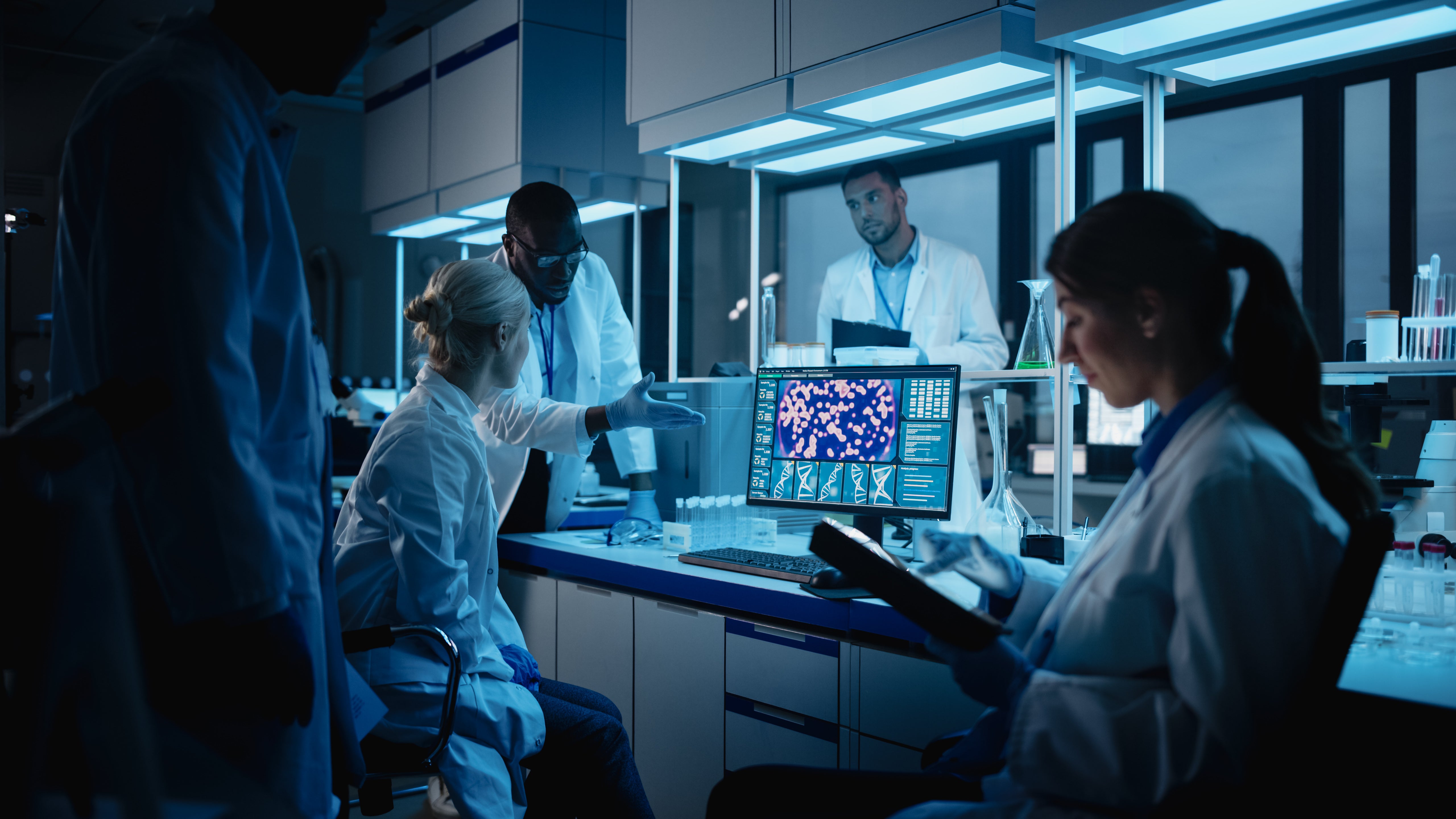Life sciences: meeting the sustainability challenge in a highly regulated environment
THE ARTICLES ON THESE PAGES ARE PRODUCED BY BUSINESS REPORTER, WHICH TAKES SOLE RESPONSIBILITY FOR THE CONTENTS

Schneider Electric is a Business Reporter client.
How life sciences must leverage digital innovation to uphold sustainability without compromising compliance.
The life sciences industry is a mixed bag when it comes to digital transformation. Some sub-sectors are pioneering innovative solutions to ensure product safety and improve efficiencies; others are conservative in their approach. However, like any sector in 2024, life sciences must also face the challenge of sustainability head-on. In its comparatively advanced digitalisation, it has a distinct advantage, but thanks to tight regulation it also faces unique challenges.
The entire life sciences process, from R&D to end-of-line product, including medical devices, vaccines and pharmaceuticals, demands substantial resources, including energy, water and raw materials. While other manufacturing sectors might freely experiment with sustainable alternatives and efficiency improvements, life sciences must navigate the additional hurdles of validation and regulatory compliance with each modification to their processes. Additionally, the sector often handles sensitive data, including patient information, making cyber-security a crucial aspect of deploying onsite renewable energy options to prevent breaches that could incur severe penalties.
Alongside these regulatory and cyber-security challenges, life sciences products, particularly pharmaceuticals, endure lengthy development cycles that can prolong the time needed to implement more long-term sustainability improvements.
Despite these obstacles, the immediate need to improve sustainability is not only viable but essential for the sector’s journey towards net-zero emissions. Life sciences companies in the vanguard of sustainability and digitalisation are showing what is possible by partnering with digital and sustainability experts such as Schneider Electric to reduce carbon emissions and energy and water usage, while ensuring product quality through an open, secure and resilient supply chain.
Central to the advances being made is the ability to overcome previous interoperability challenges by working with vendor-neutral technologies that operate in more open systems, freeing companies to explore options that enable rapid sustainability improvements, confident in their seamless integration with existing processes.
This open integration environment allows data to run freely through an organisation, making it simpler than ever to see (and prove) what is actually happening to raw materials, processes and products throughout the supply chain. However, leveraging this environment to improve sustainability performance using a traditional, incremental, continuous improvement approach remains challenging, because of those hurdles of validation and regulatory compliance with each modification of the manufacturing process.
The right strategic collaboration with a digitalisation and sustainability partner, however, can help life sciences companies make immediate improvements in three important areas:
Power reliability
Effective power management provides life sciences businesses with the data and control needed for safe, sustainable power solutions with optimal uptime and asset utilisation. The integration of IIoT-enabled devices into electric power management systems offers real-time insights into plant conditions.
This not only secures power availability but also enhances sustainability. Digitalising energy efficiency reporting simplifies emissions compliance, a challenge faced by many within the life science sector.
Facility management
Maintaining product quality in life sciences necessitates stringent control over environmental conditions within production facilities. Integrating temperature, air exchanges and humidity monitoring into a unified environmental control system allows facilities to adapt to changes sustainably and responsively. Life science companies are also starting to build smart factory principles into their facility design, such as the integration of renewable power and smart management of grid power usage verses on-site generation.
Consistent quality
An open digital thread throughout a life sciences facility enables immediate correction of potential deviations in complex processes. This capability helps prevent waste of entire or part batches, maximising the use of every resource, energy and ingredients alike, and effectively bridging sustainability with digital transformation. Open-data-driven models enable real-time monitoring which allows for management of reliability, maintenance and product supply chains. The visualisation of processes and utilities across this supply chain is critical to operations within life sciences.
Importantly, the right digitalisation and sustainability partner can work closely with life sciences companies to deliver such improvements securely with holistic security solutions, compliant automation systems, robust data protection and compliance support, ensuring operation and sensitive information remain safeguarded against cyber-threats. The use of AI and ML technologies has also given the chance to employ significant advantages to this topic.
Despite, and perhaps partly because of, the unique challenges of the sector, life sciences can and must remain a leader in the adoption of technology as industry strives to deliver more sustainable practices. Importantly, life sciences organisations cannot undertake the challenge alone, so the selection of the right digitalisation and sustainability partner is a crucial decision.
To explore how digital solutions can accelerate your sustainability goals and provide solutions to your unique challenges, complete your own Schneider Electric Self-Assessment now and take the first step towards a greener future.
About Schneider Electric
Schneider’s purpose is to empower all to make the most of our energy and resources, bridging progress and sustainability for all.
Our mission is to be your digital partner for sustainability and efficiency.
We drive digital transformation by integrating world-leading process and energy technologies, end-point to cloud-connecting products, controls, software and services, across the entire lifecycle, enabling integrated company management, for homes, buildings, data centres, infrastructure and industries.
We are the most local of global companies. We are advocates of open standards and partnership ecosystems that are passionate about our shared meaningful purpose and our inclusive and empowering values.
